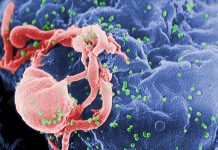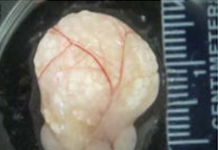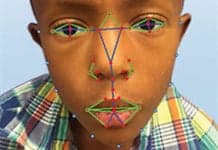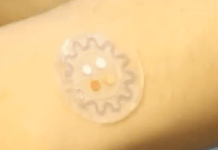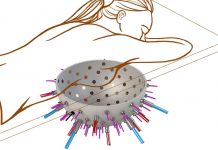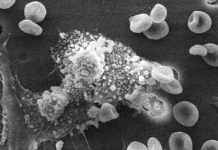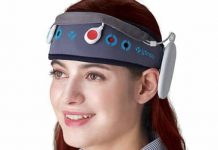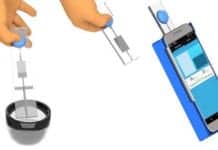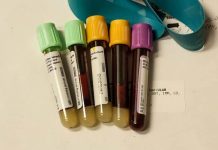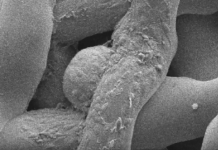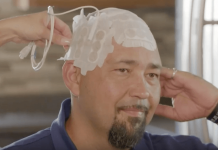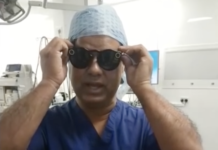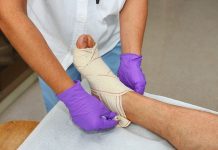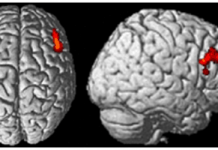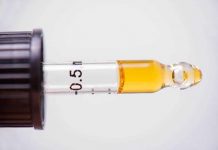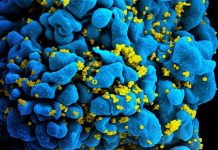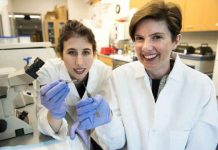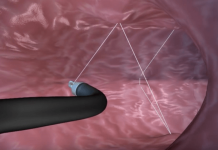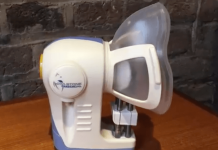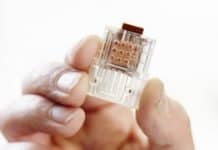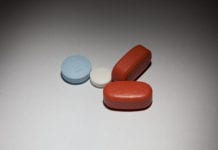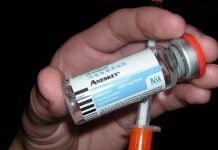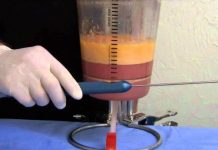Scientists May Be Getting Closer to Curing HIV
City of Hope currently has active clinical trials of gene therapy for AIDS using blood stem cell transplantation.
Scientists Use CRISPR to Change a Flower’s Color
Scientists have changed the genetic makeup of flowers by using DNA splicing technology, which reveals the vast potential of CRISPR.
Scientists Reveal New Prostate Cancer Vaccine
After receiving the vaccine, 77 percent of trial patients' tumors stopped growing, and 45 percent of trial patients saw tumor shrinkage.
Artificial Ovaries Could Mean Less Harmful Hormone Therapies for Women
The researchers hope to determine whether the engineered ovaries are successful for women.
Glass Batteries Could Soon Power Our Devices
The man who helped to invent the lithium-ion battery has now introduced a more efficient, fast-charging glass battery that could soon make its way to market.
New Facial Recognition Technology Can Detect Rare Disease
Diagnosing a rare disease in children called DiGeorge syndrome may be as simple as taking a photo with new facial recognition software.
Elephants May Hold the Key to Curing Cancer
Less than five percent of elephants get cancer in their lifetime, and an abundance of a cancer-fighting protein in their genetic makeup is likely the reason why.
Virtual Reality Could Help Prevent Older People From Falling
Utilizing virtual reality to assess the muscles used in maintaining balance could lead to new therapies to help the elderly avoid falling.
Sweat Patch Could Help People Track Their Health
The answer to tracking your health could be in your sweat. Scientists have created a skin patch that is capable of collecting and analyzing sweat.
When High Heels Hurt, Try These ‘Pillows’ for Your Feet
Anyone who has ever worn high heels knows that tingly ball-of-foot pain that happens after a few hours. That pain can ruin your night...
Researchers Aim to Create Painless Way to Screen Breast Cancer
This new treatment adds lasers to the mix, using a combination of laser and ultrasound technology to determine the presence or absence of cancer cells in the breast tissue.
Scientists Disable Cancer’s Ability to Spread Using Tiny Gold Rods
The new technique showed that using tiny gold rods heated by lasers essentially sawed off the cancer cells’ legs.
New Headband Technology From South Korea Aims to Treat Depression
This new type of treatment does not try to lessen symptoms, but rather cure depression itself.
Smartphone App Claims to Accurately Test Male Fertility
The fertility analyzer uses an “optical attachment” that plugs into a smartphone and a one-use device to collect a semen sample.
This Weight Loss Drug May Reduce Opioid Cravings: Study
Lorcaserin is a prescription weight loss pill that works by altering the brain’s serotonin circuitry, and now it's been shown to reduce opioid cravings in animal tests.
New Blood Test Aims to Detect Cancer Sooner Than Ever
By zeroing in on miniscule amounts of DNA, researchers believe they can catch cancer early and save countless lives.
Now Printing: 3D Ovaries That Can Produce Offspring in Mice
With this study, researchers hope to help restore fertility and hormone production in women who have undergone ovarian cancer treatments.
How Antibiotics Can Augment Cancer Therapy
The groundbreaking discovery reveals that a simple intervention may reverse course and prevent certain bacteria from interfering with drug therapy.
Smartphones Could Help Discharge Emergency Room Patients Faster
On average, patients whose doctors received lab results on a smartphone left the hospital 26 minutes faster than patients whose physicians had to check the hospital’s electronic system.
3 Eye Makeup Products That Will Make Your Life Easier
From magnetic eyelashes to stamp-on eyeliner, these products are the answer to eye makeup application struggles.
Cancer-Fighting Cap Nearly Doubles the Survival Rate for Brain Cancer
The cap, called Optune, can be worn while patients go about their daily tasks and works by sending alternating frequencies to the brain.
Nanogenerator Draws Power From the Body to Charge Devices
Charging the battery of your phone or wearable device may someday be as simple as wiggling your finger...
How a Mother’s Pain Inspired a Doctor’s Lifetime Work in Mind-Body Medicine
Dr. Keerthy Sunder was inspired to pursue mindfulness medicine after being an eyewitness to his mother’s devastating health challenges.
Doctor Uses Snapchat Spectacles During Surgery to Create Tutorial
A doctor at the London Independent Hospital recorded a routine hernia repair surgery with a pair of Snapchat Spectacles.
This Doctor Just Created a Slimming Chocolate
After developing a variety of supplements that help to better your body from the inside out, Dr. Amy Lee and the Nucific brand are combining two ideas that are usually an oxymoron: slimming and chocolate.
Smart Bandages That Monitor Wounds Are Getting Closer to Trials
The smart bandages would report their analysis through a regular broadband network and are designed to monitor an array of physical attributes.
Miss or Must-Have? Rank These Health Innovations
Vital Updates scours the web daily for innovative health products. Cast your vote to let us know which ones you think are the most interesting.
Scientists Create Solar-Powered Skin for Prosthetic Hands
Scientists have created a new use for the sun’s rays.
Clinical Trials for Type 1 Diabetes Vaccine Coming Soon
The vaccine centers around previous research that has identified a common type of virus, called an enterovirus, as a cause of type 1 diabetes.
Brain Stimulation Can Boost Honesty, Limit Selfish Feelings
People who received the transcranial current on a specific region of the brain were less likely to cheat than people who didn’t receive the brain stimulation.
Marijuana Extract May Reduce Seizures in Epilepsy Patients
Cannabidiol, or CBD, was found to reduce seizures among patients with a rare form of epilepsy by nearly 40 percent.
These New High-Tech Glasses Could Bring Relief to Insomnia Sufferers
Read about the science behind these innovative sleep aid spectacles.
HIV Epidemic May Come to an End by 2025, Predicts Study
Current goals in place that seek to reduce new yearly infections to 12,000 cases in the U.S. by 2025 are already showing signs of success.
3D-Printed Patch Can Heal Hearts
The 3D bioprinting allows for the patch to be a close match to heart tissue structure.
No Cuts About It: Non-Surgical Weight Loss Procedure Shows Results
Similar to a gastric bypass procedure, the new 'accordion procedure' works to decrease the size of the stomach but without the cuts and scars that come with invasive surgery.
Scalp-Cooling Caps May Prevent Hair Loss for Cancer Patients
A new scalp-cooling system may stop hair loss for women undergoing chemotherapy for breast cancer.
Researchers Are Developing Machines to Smell How Healthy You Are
Researchers believe scent-based technology holds vast promise in improving health outcomes due to the possibility of early detection.
USB Stick Doubles as HIV Test
British scientists have developed an HIV test on a USB stick, which quickly and accurately measures the levels of the virus in a person’s blood.
Empathy Device Allows You to Move Another Person’s Hand with Your Emotions
The involuntary hand gestures occurred as the result of a mood change in the person on the other end of the device.
Woman Has Baby From Embryo Almost As Old As Her
The embryo was 24-years-old.
Campaign Launched to Get More Women Into HIV Heart Health Study
Since antiretroviral medications used to treat HIV increase one's risk of heart disease, a clinical trial seeks both male and female participants to test whether a heart disease pill will help.
Smartphone Add-On Camera Lets You See Beneath the Surface of Your Skin
NURUGO's smartphone camera accessory and app can help people monitor their skin health and catch early signs of potentially dangerous conditions before they even become visible.
Ketamine Could Be the Answer to Treatment-Resistant Depression
Although ketamine use isn't completely understood, a new study suggests it may prove helpful for treating older patients who struggle with depression.
‘Tree Man’ Has Surgery to Remove Branch-Like Hands
A man dubbed as such for his tree-like hands finally finds relief from this extremely rare condition, thanks to the kindness of doctors in Bangladesh.
Now You Can Drink Your Water and Eat It, Too
Believe it or not, this ball of water is entirely edible.
At-Home DNA Test Can Reveal Risk for Hereditary Conditions
The newly FDA-approved test can analyze one's predisposition for certain hereditary conditions, like celiac disease and Alzheimer's.
Plastic Surgery Goes Green With ‘Fat Recycling’
Hair is used to make wigs and old clothes are donated, so what can be done with fat taken out of people's bodies?
Gene Therapy That Treats Rare Blindness Gains FDA Approval
Experts believe the cost for the novel treatment may soar to $1 million or more.
Artificial Eye Corrects Astigmatism, Focuses on Objects Automatically
The nanoengineered eye, which combines a “metalens” with artificial muscle technology, bests its human counterpart in some instances.
Breath Test May Soon Be Able to Detect Flu Virus in Minutes
Combining the high-tech elements into one device gives the new test a significant advantage over current detection methods, which take hours to diagnose the virus instead of minutes.


